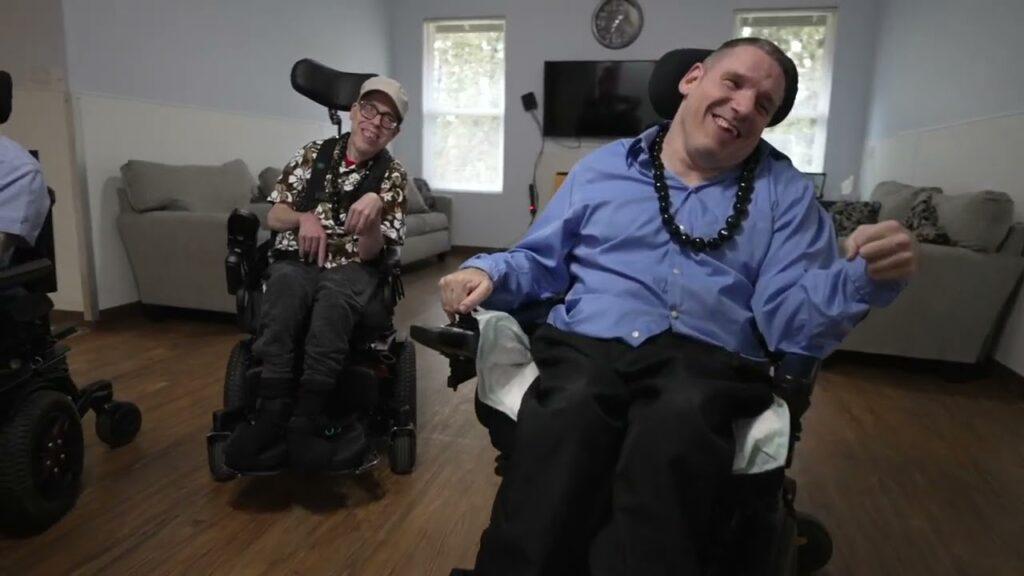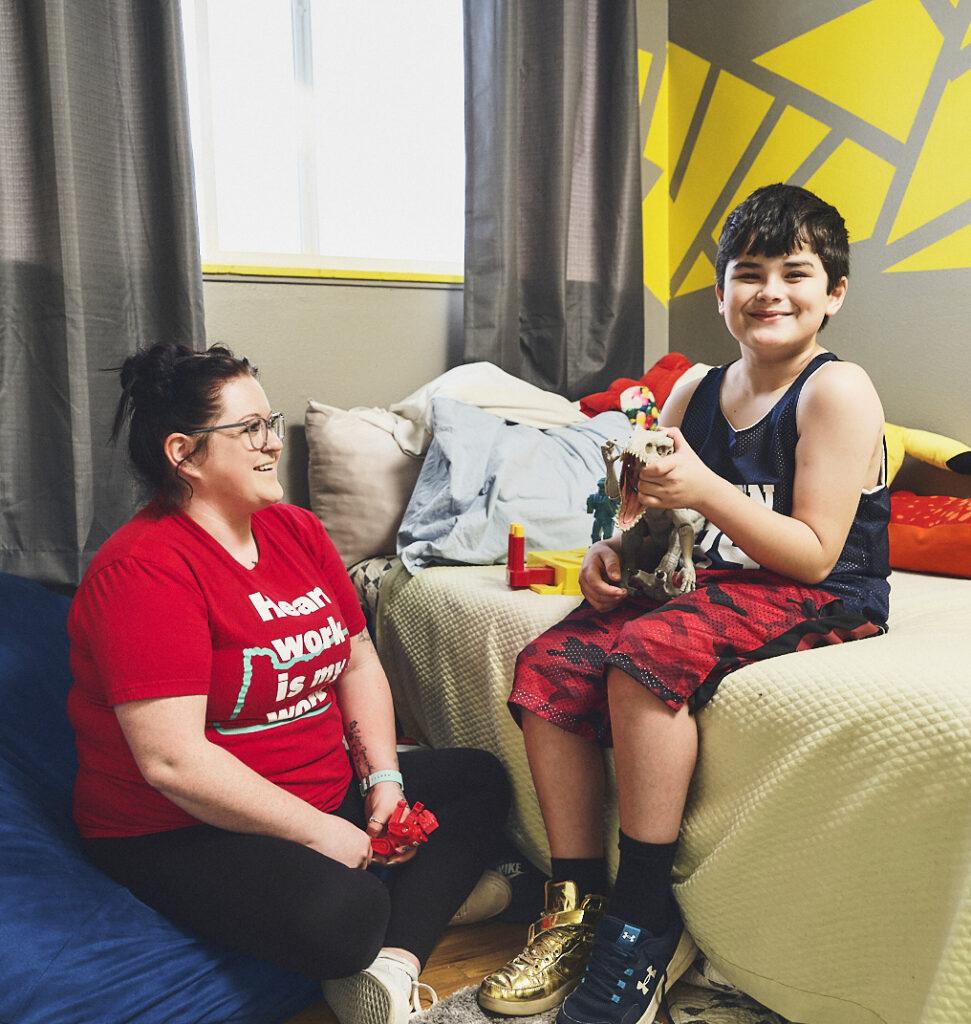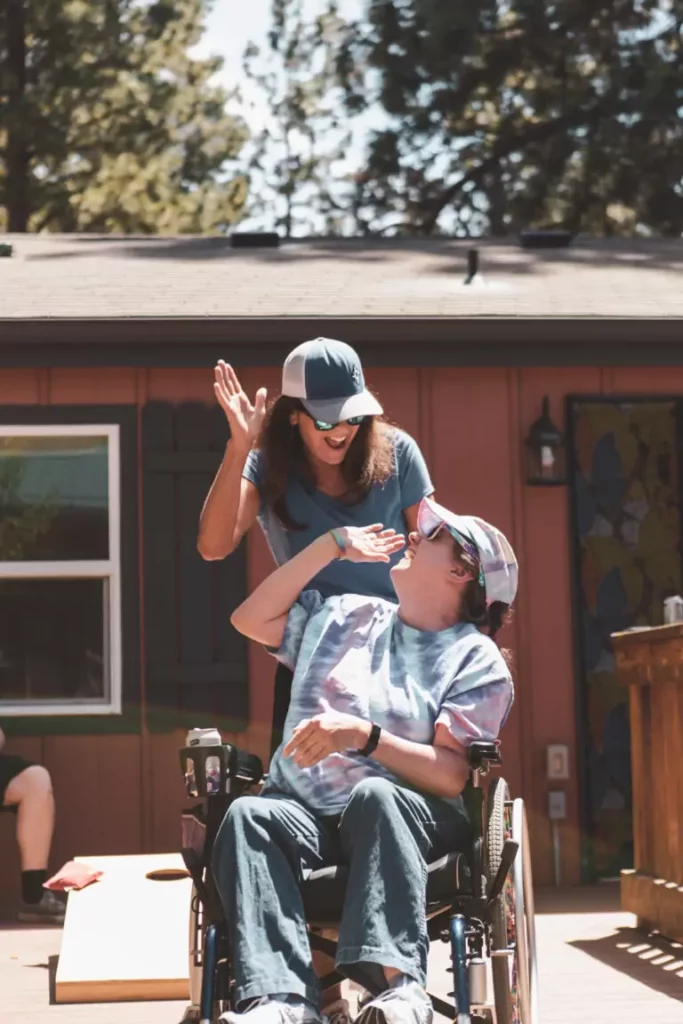Support our diverse communities by buying tickets from the ALSO HEARTS raffle fundraiser! Tickets are available until July 31st, 2025.
Support our diverse communities by buying tickets from the ALSO HEARTS raffle fundraiser! Tickets are available until July 31st, 2025.

It’s a great feeling after spending all day at work, or an evening with friends, when we walk through our door and say, “Ah, it’s good to be home!”
ALSO is dedicated to delivering person-centered support services that assist people with intellectual and developmental disabilities (IDD) in independent living environments rather than with family caregivers or in some type of institutionalized care. With proper supports, accessible housing options (and, of course, skilled service providers), the dream of having a place to call home has become a reality.

According to the Kuni Foundation, [1] persons with IDD live in one of three general types of environments: 1) supervised residential settings, 2) independently (with or without roommates), or, 3) with family caregivers. The lack of affordable housing opportunities and soaring costs in the private market make it difficult for all Americans to secure rental or owner-occupied housing. It’s particularly tough for low-income families and individuals with IDD. Accessible and safe public housing is rare. Determining eligibility criteria for financial assistance is quite complex.
ALSO is fully aware of these problems. That’s why we offer high-quality housing options, so those with IDD thrive in the least restrictive environment. We’ve done this by securing funding opportunities, and nurturing community support. Most of all, we’re a top provider of supportive services in Oregon.
ALSO support models range from 24-hour in-home support to community living for those who are more independent. It’s just the right balance between nurturing strengths and accommodating needs for cognitive, behavioral, and physical disabilities. We know that as someone grows and learns, they’ll have different needs. Therefore, we’re accustomed to accommodating both temporary and permanent supportive housing.
Our residential services are known for their person-centered wraparound approach. We work closely with families, human services, case management, and others to ensure the best possible quality-of-life. Days are filled with fun activities within housing units, with roommates, and in communities. The result is equal opportunity at home, work, and in school.

Glenda Van Ortwik is one of the people that ALSO supports in the Supported Living Services Program. We asked her about how she makes her house a home.
Glenda: I have my cat. Dragon loves to play with balls. Another cat, Orion, belongs to my roommate. I take care of Dragon completely on my own. He loves to talk.
Glenda’s comment is notable because caring for a pet gives Glenda a sense of purpose and responsibility. It’s great for her well-being.
Glenda: My favorite thing in my room are my pictures. I have a picture of my brain on my wall. My favorite picture is one of the Winnie the Pooh characters from Disneyland.
Glenda has a private place where she makes choices regarding her individual needs.
Glenda: I got a Ring Camera to keep an eye on my neighbors. There’s some neighborhood kids who mess with my house, so it makes me feel more secure. I’ve got chore charts to help me out with chores.
Glenda benefits immensely from assistive technology that keeps her safe. Other types of technical assistance are facilitated by Direct Support Professionals (DSPs) to keep her on track with self-care tasks.
Glenda: It means that I get to do stuff with a little help if needed. Everything else, I get to be independent with– like going on walks and taking the bus. At doctor appointments, I advocate for myself– I say what I want for my medical care…and what I don’t.
So what insights does Glenda’s interview reveal? It makes it clear that we’re all the same when it comes to what makes a house a home:

Glenda can answer this question:
“I get one-on-one [support], unlike my last place where they didn’t stay with me most of the day. That’s what I like about ALSO’s supported living. The other place had 15 others at the same time. They couldn’t stay with one particular person all day long. With ALSO, I get staff that comes in from 11:30 to 7 o’clock.”
In addition to amazing DSPs, we have advocates who give extensive help in locating the following resources if individuals and families have low incomes:
Overall, ALSO is nationally recognized as one of the best nonprofit organizations for helping people with IDD live their best lives.
“Home is where your heart is… A place to hang your hat… There’s no place like home.”
Interested in our disability support services? Learn more today by calling (503) 489-6565 or emailing info@alsoweb.org.

Sign up for our newsletter to get our latest news, content, and job opportunities.
Help us ensure that everyone has the same opportunities in their home, workplace and community. Let’s make dreams!
